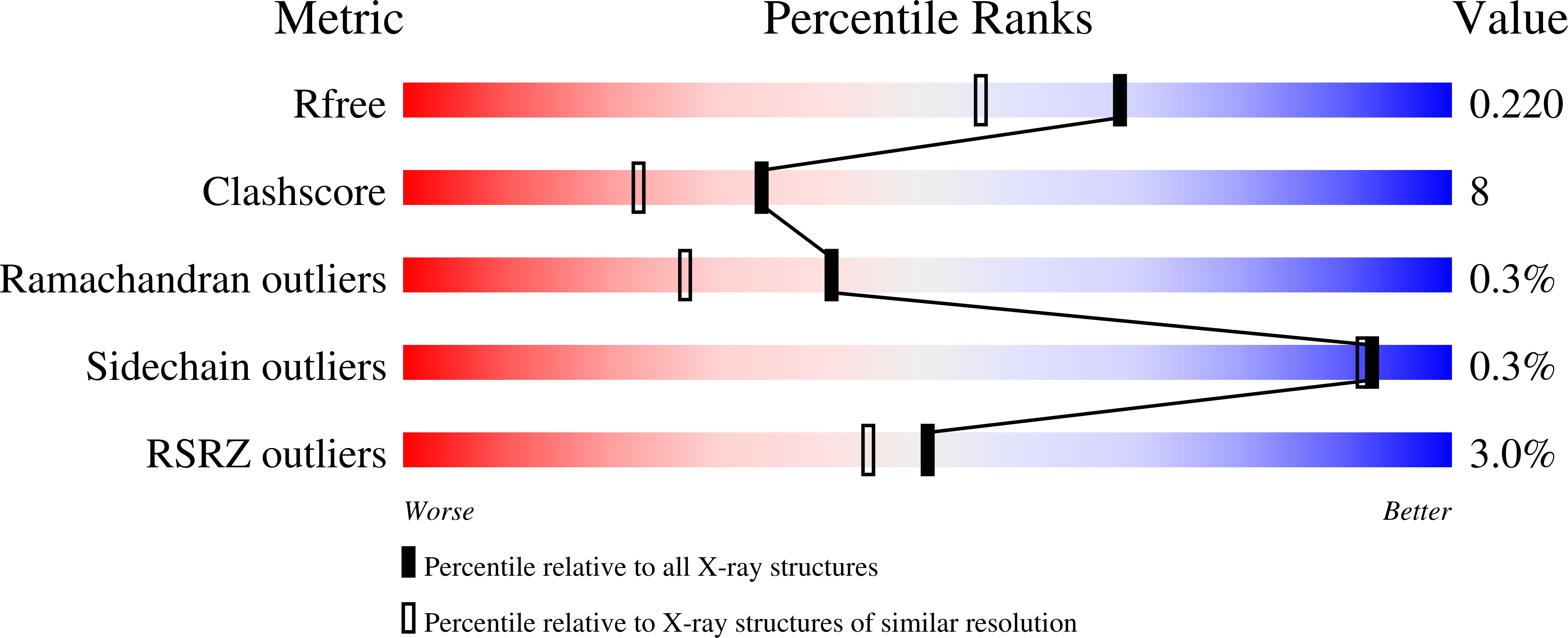Crystal Structure Analysis of Phosphatidylcholine-GM2-Activator Product Complexes: Evidence for Hydrolase Activity.
Wright, C.S., Mi, L.Z., Lee, S., Rastinejad, F.(2005) Biochemistry 44: 13510-13521
- PubMed: 16216074
- DOI: https://doi.org/10.1021/bi050668w
- Primary Citation of Related Structures:
2AF9, 2AG2, 2AG4, 2AG9, 2AGC - PubMed Abstract:
GM2-activator protein (GM2AP) is a lysosomal lipid transfer protein with important biological roles in ganglioside catabolism, phospholipid metabolism, and T-cell activation. Previous studies of crystal structures of GM2AP complexed with the physiological ligand GM2 and platelet activating factor (PAF) have shown binding at two specific locations within the spacious apolar pocket and an ordering effect of endogenous resident lipids. To investigate the structural basis of phospholipid binding further, GM2AP was cocrystallized with phosphatidylcholine (PC), known to interact with GM2AP. Analysis of three crystal forms revealed binding of single chain lipids and fatty acids only and surprisingly not intact PC. The regions of best defined electron density are consistent with the presence of lyso-PC and oleic acid, which constitute deacylation products of PC. Their acyl tails are in stacking contact with shorter, less well-defined stretches of electron density that may represent resident fatty acids. The GM2AP associated hydrolytic activity that generates lyso-PC was further confirmed by mass spectrometry and enzymatic assays. In addition, we report the structures of (i) mutant Y137S, assessing the role of Tyr137 in lipid transfer via the hydrophobic cleft, and (ii) apo-mouse GM2AP, revealing a hydrophobic pocket with a constricted opening. Our structural results provide new insights into the biological functions of GM2AP. The combined effect of hydrolytic and lipid transfer properties has profound implications in cellular signaling.
Organizational Affiliation:
Department of Pharmacology, X-ray Crystallography Laboratory, University of Virginia, Charlottesville, Virginia 22908-0735, USA. csw2n@virginia.edu




















